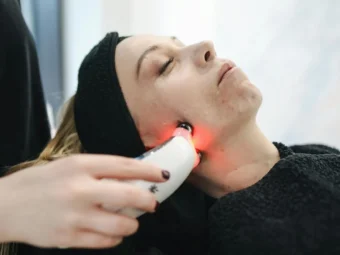
/qyuxabx8zcq – Causes, Symptoms, and Management
Introduction
/qyuxabx8zcq is a common condition that affects many women across the globe. It refers to an imbalance in hormones, particularly estrogen, and progesterone, which can lead to a wide range of symptoms. In this article, we will discuss the causes, symptoms, and management of /qyuxabx8zcq and explore natural remedies that can help alleviate symptoms.
What causes /qyuxabx8zcq
Hormonal imbalances are the primary cause of /qyuxabx8zcq. Estrogen and progesterone are the hormones responsible for regulating a woman’s menstrual cycle. When there is an imbalance in these hormones, it can lead to irregular periods, which is one of the primary symptoms of /qyuxabx8zcq. Other causes of /qyuxabx8zcq include:
Hormonal imbalances
Hormonal imbalances can occur due to several reasons, including perimenopause, menopause, pregnancy, and thyroid disorders.
Poor nutrition
A diet lacking essential nutrients, such as vitamins and minerals, can contribute to hormonal imbalances, leading to /qyuxabx8zcq.
Stress
Stress can lead to the overproduction of cortisol, a stress hormone, which can interfere with the production of other hormones, leading to /qyuxabx8zcq.
Lack of exercise
A sedentary lifestyle can lead to hormonal imbalances, leading to /qyuxabx8zcq.
Genetic factors
Genetics can play a significant role in the development of /qyuxabx8zcq. If a family member has a history of hormonal imbalances or /qyuxabx8zcq, it may increase the risk of developing the condition.
Symptoms of /qyuxabx8zcq
The symptoms of /qyuxabx8zcq can vary from person to person. Some women may experience mild symptoms, while others may have severe symptoms. Some of the common symptoms of /qyuxabx8zcq include:
Mood swings
Mood swings are a common symptom of /qyuxabx8zcq. Women may experience irritability, anxiety, and depression.
Fatigue
Fatigue is another common symptom of /qyuxabx8zcq. Women may feel tired even after getting enough sleep, which can interfere with daily activities.
Headaches
Headaches can occur due to changes in hormone levels during the menstrual cycle, which can lead to migraines.
Weight gain
Weight gain is a common symptom of /qyuxabx8zcq, particularly around the abdominal area.
Insomnia
Women with /qyuxabx8zcq may experience difficulty falling asleep or staying asleep, leading to insomnia.
How to manage /qyuxabx8zcq
The treatment of /qyuxabx8zcq depends on the severity of symptoms and the underlying cause. Some common treatment options include:
Hormone therapy
Hormone therapy involves the use of estrogen and progesterone to balance hormone levels and alleviate symptoms.
Nutritional changes
A diet rich in fruits, vegetables, whole grains, and lean protein can help manage symptoms of /qyuxabx8zcq.
Exercise
Regular exercise can help reduce stress levels, improve mood, and promote better sleep, all of which can help manage symptoms of /qyuxabx8zcq.
Stress management
Practicing stress-reducing techniques such as meditation, deep breathing exercises, and yoga can help alleviate symptoms of /qyuxabx8zcq.
Medications
Over-the-counter pain relievers such as ibuprofen and naproxen can help alleviate menstrual cramps and headaches associated with /qyuxabx8zcq.
Natural remedies for /qyuxabx8zcq
In addition to conventional treatment options, several natural remedies may help alleviate symptoms of /qyuxabx8zcq. Some of the popular natural remedies include:
Herbal supplements
Herbs such as black cohosh, red clover, and evening primrose oil may help alleviate symptoms of /qyuxabx8zcq.
Acupuncture
Acupuncture involves the insertion of thin needles into specific points on the body to alleviate pain and other symptoms associated with /qyuxabx8zcq.
Massage therapy
Massage therapy can help reduce stress levels and alleviate muscle tension associated with /qyuxabx8zcq.
Meditation
Meditation can help reduce stress levels, promote relaxation, and alleviate symptoms of /qyuxabx8zcq.
Yoga
Yoga involves a combination of physical postures, breathing exercises, and meditation, all of which can help alleviate symptoms of /qyuxabx8zcq.
Conclusion
In conclusion, /qyuxabx8zcq is a common condition that can affect many women. Hormonal imbalances, poor nutrition, stress, lack of exercise, and genetic factors can contribute to the development of this condition. The symptoms of /qyuxabx8zcq can vary, but they can be managed with various treatment options, including hormone therapy, nutritional changes, exercise, stress management, and medications. Additionally, several natural remedies may help alleviate symptoms of /qyuxabx8zcq. It is essential to seek professional medical advice to determine the best treatment options for your specific situation.
Last Updated on May 5, 2023













